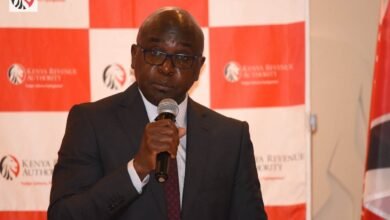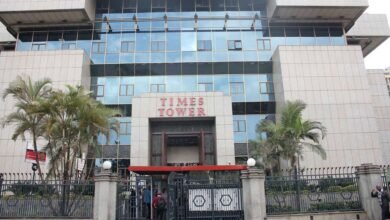
The Kenyan government is now seeking powers from the National Assembly to seize property of suspects caught in money laundering syndicates.
The State-backed Proceeds of Crime and Anti-Money Laundering (Amendment) Bill, 2021 seeks to enable the Financial Reporting Centre (FRC) and other security agencies to stop criminal activities before they occur.
Amendments will give FRC authority to stop the transactions for not more than five working days and allow other State agencies to investigate them.
“The Centre [FRC] may, for purposes of achieving the objectives of the Act, direct the reporting institution or person, in writing not to proceed with the transaction or proposed transaction or any other transaction in respect of the funds or property affected by that transaction or proposed transaction,” says the Bill.
Today, according to Business Daily, individuals and firms can complete transactions suspected of money laundering but keep records that are used for investigations.
This has created a gap which criminals have used to circulate dirty cash and fund activities linked to terrorism.
The five-day freeze order will allow the entity to share information with the Assets Recovery Agency (ARA), Kenya Revenue Authority (KRA), and the Ethics and Anti-Corruption Commission (EACC) for appropriate action.
The state shall prioritise transactions made that deem to finance terrorism acts, buying and selling of property and management of companies and will not be limited to management of bank savings and shares accounts on behalf of clients.
Also Read:
- DTB Bank Kenya taps Anti Money Laundering expert for a board role
- Kenya to raise cash limit for foreign investors
- CBK Governor Dr. Njoroge warns regulating digital lenders not enough
“The Bill seeks to introduce a new section 44A requiring the Financial Reporting Centre to intervene where the Centre has reasonable grounds to suspect that a transaction may be suspicious. This will ensure timely access to information on assets held by criminals as preventive and repressive measure and, ultimately disrupting criminal networks and unlawful activities.”
In 2009, Kenya enacted the Proceeds of Crime and Anti-Money Laundering Act, which is the most comprehensive piece of AML legislation in the country.
Kenya has also criminalized money laundering under the Narcotic Drugs and Psychotropic substances (Control) Act, 1994.
This Act provides for the forfeiture of property derived from or used in drug trafficking.
“Section 36 of this Act specifically provides for a mandatory forfeiture to the Government of Kenya of all property owned by a person on the date of commission of an offence under the Act, or which has been acquired by the person after the date of the commission of the offence,” this is according to Nyiha, Mukoma and Company Advocates.
In March this year, a report tabled before the US Congress exposed Kenya’s vulnerability to money laundering, financial fraud and terrorism financing.
The vices are perpetuated through the growing use of mobile money transfer platforms, the hawala system of banking and Trade-Based Money Laundering.
The document was part of the annual International Narcotics Control Strategy report tabled before the US Congress to monitor the most affected countries, and gaps and measures put in place to curb illicit financial transactions that further aid criminal activities.
Kenya ranked among major money laundering jurisdictions across the globe, when diaspora remittances to the country rose to Ksh.178 billion between January and August 2020, some of which were suspected to have been proceeds of narcotics trade.
Other African countries in the same category include Nigeria, Ghana, Liberia, Morocco, Mozambique, Tanzania, Algeria and Benin.
Other countries on the list include Cyprus, Cuba, Italy, Mexico, Turkey, United Arab Emirates, Vietnam, India, Cayman Islands, United States, the UK, and Colombia.
The report published by the US State Department notes that despite the COVID-19 effect on the status of many economies in the world, the flow of illicit money continued.
Legislatures will debate the Bill when they return from their recess next week.





